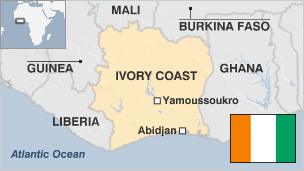The Ivorian Parliamentary Commission in charge of Economic and Financial Affairs, on Tuesday, unanimously voted a bill ratifying a decree establishing a new Investment Code to give a boost to the country’s industrialization drive.
This Investment Code aims “a massive mobilization of private investment and the promotion of the priority sectors of the National Development Program (PND 2016-2020),” the Secretary of State to the Prime Minister, in charge of the Promotion of Private Investment, Essis Esmel said.
In 2012, the State of Cote d’Ivoire revised its investment code, in the wake of the 2010-2011post-election crisis. From 2013 to 2018, some 1,196 companies were approved with a total investment of 3,451 billion CFA francs and the creation of 38,700 jobs, M. Essis added.
One of the motivations of this new code, he explained, is to have an optimization of the tax expenditure. The old code included exemptions, as did the new code that created two tax incentive schemes: the declaration and licensing regime.
In the new code, companies involved in priority sectors of activity, receive, upon completion of their investment programs, benefits including tax credits, according to areas of activity and investment thresholds.
At the level of local employment, an additional 2 percent tax credit is granted to foreign investors whose number of Ivorian executives and managers represents 80 percent of the total workforce of these two categories of employees.
In addition, entrepreneur benefit from an additional 2 percent tax credit when they subcontract with national companies for the realization of infrastructure works, software, the manufacture of spare parts.
This benefit is also granted for any other good incorporated in a final product in Cote d’Ivoire, as well as abroad. According to the code, the subcontractor also covers the services and must represent at least 25 percent of the activities subcontracted by the company.
Investments in the hospitality sector or large shopping centers that require a partnership between the company that creates the real estate infrastructure and the one that operates it benefit from these advantages, provided that the company applies for accreditation.
AP/ls/fss/abj/APA


